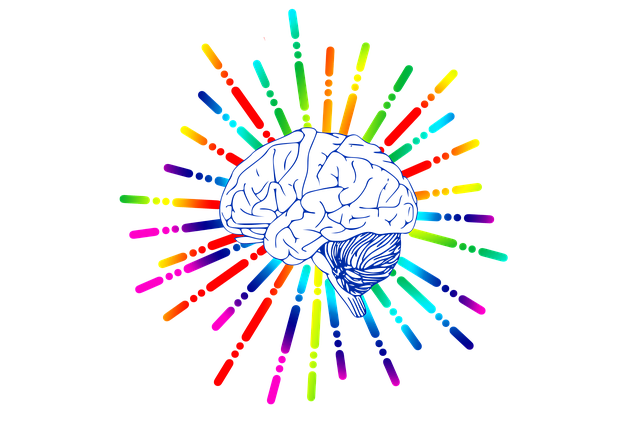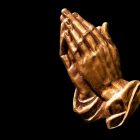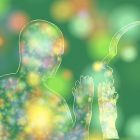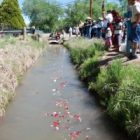David Loy revisits the debate of Darwinism vs. creationism and wonders whether we can understand evolution as a process by which the cosmos is becoming self-aware. In other words, “[a]re humans a way that the cosmos is coming to know itself?”
33.4 Fall
Violence, Morality and Religion
|
In an attempt to prevent violence, we have created institutions, namely, morality and religion––but, paradoxically enough, the most deadly violence has always been done in the name of these institutions. In this article, James Gilligan and James Vrettos ask why this is and what we can do about it.
33.4 Fall
Prophetic Empathy
|
Cat Zavis writes about the importance of seeing the humanity of those whose political views differ from ours and challenging views we disagree with in a respectful and yet powerful way,
33.3 Summer
Organizations that Embrace Interdependence
|
We need to change more than what we do, we need to change how we do it. Two practitioners discuss how to create liberating systems of organizational and community self-governance.
33.3 Summer
Anchoring the Heart of a Democratic Economy
|
When large institutions are under threat, it is even more essential that we find the agency to embody direct democracy in our relationships with one another.
33.3 Summer
Frozen Out
|
A web series about gentrification and climate change doesn’t just shed light on an important intersection of issues, it is a shining example of how communities can take control over public narratives.
Economy/Poverty/Wealth
Feeding Children, Communities, and Souls
|
An intimate portrait of a rural community’s work to undermine the military industrial complex, subvert capitalism, reclaim land, and bond faith communities together.
33.3 Summer
Coming Home
|
The movement for a new economy is built on a spiritual materialism that calls upon us to return to our true natures as individuals, communities, and societies. An overview of the vision and progress in an exciting community of visionaries.
33.3 Summer
Partnerism: Post-Capitalist/Post-Socialist Economics
|
Focusing on the debate between capitalism and socialism obscures the more fundamental point that both systems are based on domination. The economy we need will be based on partnership.
33.3 Summer
A Kabbalistic View of Healthcare Transformation
|
Faced with the reality that doctors have the highest suicide rate among the professions, and so many people report unhappy experiences with the medical system, an M.D. explores what a true tikkun of healthcare would look like.
33.3 Summer
When My Mother Wanted to Die
|
Margaret Morganroth Gullette lays bare the ageist struggle that old people face: “invisibility and hypervisibility, intolerance of our appearance, lack of audiences for our subjectivities, underestimation of our trials, dislike of our alleged characteristics or disgust at our apparent weaknesses.”
33.3 Summer
Two-State Solution Dead? Time for One Person/One Vote
|
Rabbi Michael Lerner proposes an alternative to the two-state solution: one person, one vote.
33.3 Summer
Introduction to The Next Economy
|
An economy in line with our deepest spiritual values is not only possible, it is already emerging around us. The feature section of this issue explores a few dimensions of recent developments.
33.3 Summer
Creating New Economies through the Urban Commons
|
Jay Cumberland comments on how “oppression in cities has led many residents to seek community by emphasizing differences”––and provides a solution.
33.3 Summer
The King Midas Monoculture
|
We have built a society that is obsessed with turning everything into money. In order to survive, we need to find new ways to create, perceive, and exchange value.




